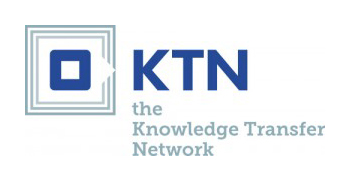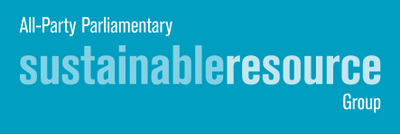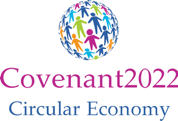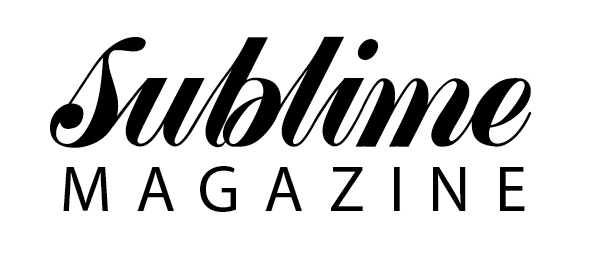SUSTAINABLE INNOVATION 2016
‘Circular Economy’ Innovation & Design
Part of the ‘Towards Sustainable Product Design’ series of conferences
21st International Conference
7th-8th November 2016
University for the Creative Arts
Epsom
Surrey
KT18 5BE
UK
The Centre for Sustainable Design ® at UCA, UK
VENUE PARTNERUniversity for the Creative Arts
STRATEGIC PARTNERSThe Knowledge Transfer Network
All-Party Parliamentary Sustainable Resource Group
Concept
Sustainable Innovation 2016 will provide a platform to discuss the opportunities and challenges related to Circular Economy innovation and design related to products, services, technologies and new business models. Sustainable Innovation 2016 will include invited and refereed papers from academics, consultants, entrepreneurs, technology providers, designers and innovation and sustainability directors as well as other business functions. The event will create a unique space for learning, networking and thinking. Delegates will come globally from large companies and SMEs, as well as academia, government and non-governmental organisations. The conference is supported by an international Advisory Board.
Background
Alongside climate change, resource efficiency and productivity has moved up the international political and economic agendas during the 00s and Circular Economy (CE) has emerged as a key concept within it. CE thinking is concerned with more ‘circular’ (as opposed to ‘linear’) use of resources at each stage of the lifecycle, from extraction through to the ‘end of life’ and beyond. Prior to this in the 90s, leading countries such as Japan and Germany implemented a range of proactive initiatives aimed at driving resource efficiency in their economies and more recently a CE Promotion Law was passed in China in 2008. CE activity is now emerging at European policy and national standards levels, going well beyond approaches such as ‘producer responsibility’ focused on the electronics and automotive sectors. A CE policy package was launched by the European Commission in December 2015 with more of a focus on design and product-related issues. A British standard aimed at providing guidance on the implementation of CE in organisations is also being developed which defines CE as being “a systemic approach to the design of business models, enabling the sustainable management of resources in products and services”.
Research by McKinsey highlighted that adopting CE principles could, for example, benefit Europe environmentally and socially but could also generate a net economic benefit of €1.8 trillion by 2030. Implementing CE thinking in businesses has the potential to use materials much more efficiently and extend product life times by enabling reuse through repair, reconditioning and refurbishment. To enable this, a key issue will be the integration of CE considerations into the creativity and design stages of the product development process. A shift to a CE mind-set may also lead to the recognition of new opportunities related to new disruptive business models ranging from dematerialised services enabled through ICT to the strategic design of new systems to enable, for example, the remanufacturing of photocopiers, engines and other platform based products. CE will also drive new materials development and technology. For example, the 1st phase of 3D printers using recycled plastic filament and bio-plastics are now emerging.
However, there are still many challenges in implementing CE at a company and product level. This includes lack of awareness, understanding and knowledge especially at SME level and the need to build new infrastructure and systems. For example, many B2B companies have no idea about what happens to their products and the ‘end of life’ due to lack of customer pressure and/or recognition of innovation opportunities. As we move forward, key questions that will emerge over the next 5-10 years will include: what is the relationship between CE and climate change mitigation/adaption?; how will CE be implemented in global supply chains?; how will increased diffusion of CE impact on design, innovation and new business models? and what re-skilling and re-training will be needed to enable CE to be implemented?
Conference Topics
Sustainable Innovation 2016 welcomes conceptual and research-based papers focused on Circular Economy innovation and design. Papers should cover business model, innovation, product, service and/or technology design, and development and commercialisation issues related to the following topics:
- Radical change
- Design management & strategies
- Disruptive innovation
- User centred design
- Market transformation
- Product-service-systems (PSS)
- Sustainable Consumption & production
- New technologies & materials
- Green growth & economy
- Biomimicry
- Low carbon innovation
- Innovation processes
- Eco-innovation
- Organisational dimensions
- Product policy
- Product design & development
- (New) business models
- Supply chains & networks
- Product sustainability
- Fab labs & makerspaces
- Re-use, repair & remanufacturing
- Repair cafes
- Makers, modifiers & fixers
- Marketing & communications
- Open innovation
- Tools & methodologies
- Crowdsourcing
- Case studies
Benefits
Sustainable Innovation 2016 will provide a range of benefits to speakers and delegates:
- Unique:
- Forum for new thinking, ideas and concepts
- Leading-edge:
- Presentations from key international researchers, practitioners and policy-makers
- Content:
- New research, results and thinking
- Networking:
- Opportunities to meet leaders from business, government and academia
- Track-record:
- Over 2500 delegates from over 50 countries have attended previous events
Submission details
Email, fax or post 500 word abstracts describing your proposed paper by 1st June 2016. The paper will then be sent to the Advisory Board for evaluation and authors will be given feedback by June 2016. The highest rated papers will be invited to present at the conference. Please only submit abstracts if you have budgets to register and attend the conference.
Email abstracts to Ros on rcarruthers@ucreative.ac.uk
Contact
For more information on Sustainable Innovation 2016 please contact:
Professor Martin CharterDirector
The Centre for Sustainable Design ®
University for the Creative Arts
UK
Tel: + 44 (0) 1252 892772
Fax: + 44 (0) 1252 892747
Email: mcharter@ucreative.ac.uk
Website: cfsd.org.uk












